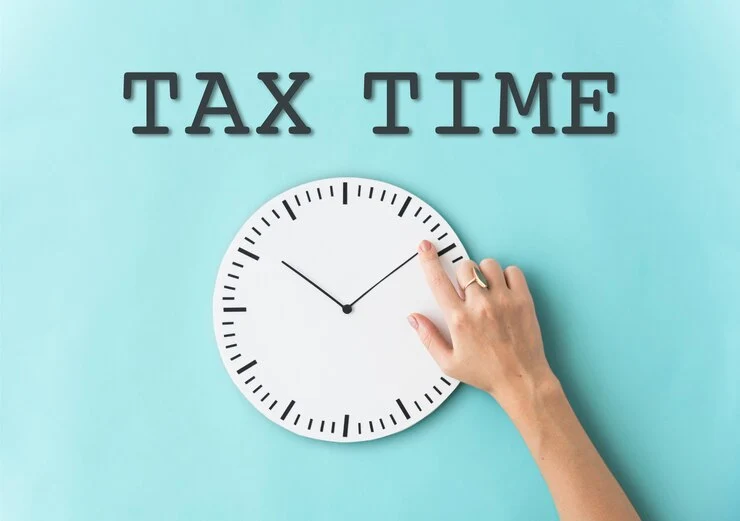
Tax time in Australia is a pivotal period for individuals and businesses to meet their financial obligations to the Australian Taxation Office (ATO). Knowing when is tax time and how to prepare is essential for ensuring compliance and possibly maximising your tax refund. In this guide, we’ll explore everything you need to know about tax time in Australia, including key dates, lodging options, and tips for a stress-free process.
When is tax time in Australia?
In Australia, the financial year begins on 1 July and concludes on 30 June. Tax time officially starts on 1 July, and this is when people start compiling their tax returns for the past financial year. Usually, individuals have 31 October as their deadline for submitting their tax returns. On the other hand, if you used a licensed tax service, your deadline will be usually into the following calendar year.
Why is tax time important?
Tax time gives a chance to fulfil legal obligations as well as:
- Claim deductions: Claiming deductions for your employment, investments, or another qualified activity lowers your taxable income.
- Get a refund: If you paid more taxes than required, you may be entitled for a return, therefore providing a great financial boost.
- Contribute to society: Taxes that pay for vital public services such infrastructure, education, and healthcare help all Australians.
Steps to prepare for tax time
1. Gather your documents
- Income statements: Your company supplies this along with your income and taxes.
- Receipts: Maintain a record of all work-related expenses, including uniforms, tools, and travel expenses.
- Private health insurance statements: If applicable, these are needed to calculate rebates or fees.
2. Understand what you can claim
- Work-related expenses: Tools, equipment, and professional memberships.
- Home office costs: If you work remotely, you can claim a portion of your home office expenses.
- Education or training expenses: If the courses are directly related to your current job.
3. Check for offsets and rebates
- Tax offsets such as the Low and Middle Income Tax Offset (LMITO) might assist in taxpayer savings.
4. Consider using a tax agent
- Working with longer deadlines lets a licensed tax adviser assure accuracy and improve your return.
5. Use MyTax or an accountant
- MyTax: The ATO’s online system for lodging returns is user-friendly and free.
- Accountants: If your financial affairs are complex, an accountant can provide specific assistance.
Key dates and deadlines for tax time
- 1 July: The new financial year starts on 1 July, and you can start getting ready to file your tax return.
- 14 July: companies must complete income statements and provide them to their employees.
- 31 October: Deadline for lodging should you be handling your tax return yourself.
- Extended deadlines: If you work with a tax agent, you have to pay them by 31 October; their lodgement deadlines are usually longer.
What happens if you miss the deadline?
Failing to meet the 31 October deadline may result in penalties or interest on any outstanding taxes. If you’re falling behind, contact the ATO immediately. They might offer an extension or assist in arranging a payment plan to help you catch up.
Tips to make tax time easier
- Stay organised throughout the year: Keep digital or physical records of your receipts, income, and expenses. Tools like expense-tracking apps help to simplify this process.
- Don’t leave it to the last minute: Early returns help you to relax and allow time to fix any problems.
- Understand tax scams: Be alert of scams during tax time. The ATO does not ask for personal information through email or text messages.
- Use pre-filled data: My tax pre-fills save time and help to minimise mistakes by pre-filing annual income and interest.
Common mistakes to avoid
- Claiming ineligible deductions: Just claim expenses directly connected to income generation. Overclaiming can cause fines and audits.
- Failing to report all income: Remember also reporting side businesses, investments, or money from abroad sources.
- Ignoring tax changes: Tax legislation is always changing, hence you should be current on events that could affect you.
The benefits of lodging early
In early July, many Australians file their tax forms to get their refunds fast. Once filed, most ATO returns take two weeks to handle. Knowing that you have finished your assignments much ahead of the deadline helps you to relax when lodging early.
Tax time for small businesses
Small business owners have extra responsibilities during tax time, including:
- Keeping business records: Claiming deductions and reporting income call for accurate bookkeeping.
- Understanding GST and BAS: If your business is registered for GST, you have to fill a Business Activity Statement (BAS).
- Seeking professional help: An accountant can help small businesses to manage complex tax rules.
Conclusion
Tax time in Australia is a crucial time that makes sure you fill financial obligations while offering you to claim seductions and get refunds. By staying organised, knowing basic dates, and seeking professional help as needed, tax time may be a stress-free experience. Whether your business is small, you are an individual, or somewhere in between, good preparation is the key to success.
Remember that tax time is not about paying money, it is about managing your financial and community obligation, not only paying your taxes. So, prepare your calendar, organise your documents, and maximise the benefits of tax time!







